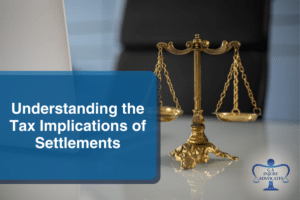Were you terminated in retaliation for filing a workers’ compensation claim?
In the state of Georgia, the rules regarding an employer’s ability to terminate an employee while they are receiving workers’ compensation benefits are governed by state laws and regulations. While employees generally have protection against retaliation for exercising their workers’ compensation rights, they may still be subject to lawful termination for other reasons unrelated to the claim.
Here’s an overview of how this works in Georgia:
- At-Will Employment: Like most states in the United States, Georgia follows the doctrine of at-will employment. This means that, in the absence of an employment contract that specifies otherwise, both the employer and the employee have the right to terminate the employment relationship at any time, with or without cause, and with or without notice.
- Company Policies: Many employers have policies in place regarding drug and alcohol use in the workplace. These policies may include drug testing procedures and consequences for employees who test positive. If your employer has a clear and enforceable policy that prohibits drug use and mandates testing after a workplace injury, they may have grounds to terminate your employment if you test positive.
- Workers’ Compensation Considerations: If you test positive for drugs after a work injury, it may impact your eligibility for workers’ compensation benefits, depending on the laws of your state. Some states allow employers and workers’ compensation insurers to deny benefits if the presence of drugs or alcohol contributed to the workplace accident.
- Retaliation Prohibited: Georgia law prohibits employers from retaliating against employees for exercising their rights under the state’s workers’ compensation system. This includes filing a legitimate workers’ compensation claim or seeking medical treatment for a work-related injury or illness.
- Retaliation Claims: If an employee believes they were terminated in retaliation for filing a workers’ compensation claim, they have the right to file a retaliation claim. Retaliation claims can be filed with the Georgia State Board of Workers’ Compensation or through the court system.
- Causation Matters: To prove a retaliation claim in Georgia, an employee typically needs to demonstrate that their workers’ compensation claim or related activities (such as seeking medical treatment) were a “substantial factor” in the employer’s decision to terminate their employment. If the employer can provide a legitimate, non-retaliatory reason for the termination, it may weaken the retaliation claim.
- Presumption of Retaliation: Georgia law creates a presumption that a termination is retaliatory if it occurs within 90 days of the employee’s workers’ compensation claim or the employee’s exercise of other rights under workers’ compensation laws. However, this presumption can be rebutted by the employer with evidence of a non-retaliatory reason for the termination.
- Legal Recourse: If an employee believes they were wrongfully terminated in violation of Georgia’s workers’ compensation retaliation laws, they can pursue legal recourse. This may involve filing a complaint with the Georgia State Board of Workers’ Compensation, which can conduct hearings and issue orders related to retaliation claims. Additionally, an employee may choose to file a lawsuit in state court.
- Appeal and Redress: If your workers’ compensation claim is denied due to drug use, you may have the opportunity to appeal the denial or seek alternative redress through legal means. An attorney can guide you through these processes.
In summary, the ability of your employer to terminate your employment after testing positive for drugs following a work injury depends on various factors, including state laws, company policies, and the causal connection between the drug use and the injury.
Injured at Work?
Satisfied clients: 4.8 star +Google Reviews
Contact us for help in filing a Georgia workers’ compensation claim.
If you believe you were wrongfully terminated in retaliation for filing a workers’ compensation claim, it’s essential to consult with an experienced employment attorney who can evaluate your case and guide you through the legal process. An attorney can help protect your rights while seeking appropriate remedies for any wrongful termination or retaliation you’ve experienced.
GA Injury Advocates
Latest posts by GA Injury Advocates (see all)
- TRUST is Our Core Value ⚖️💙 - November 6, 2025





